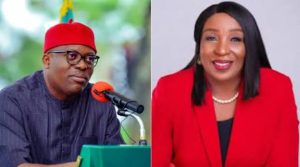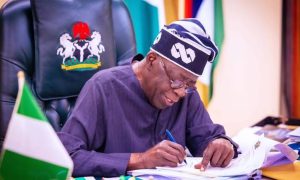
By Augustine Eigbe, Ph.D.
Nigeria’s democratic journey since 1999 has been fraught with systemic challenges, including weak institutions, electoral malpractices, and elite manipulation of governance processes. Among the most noxious threats to democratic stability is the unbridled defection of opposition politicians to the ruling party, a phenomenon that weakens political competition, stifles transparency and accountability, and embeds one-party dominance in the country.
The defection epidemic, often driven by personal ambition rather than ideological conviction, exemplifies elite capture, where a select few override the democratic will of the majority for selfish gains. If unchallenged, this practice will sabotage the very mainstay of Nigeria’s democracy, necessitating urgent pushback from citizens and civil society.
The defections in Nigeria have degenerated from political realignments into a patronage system where elites trade party loyalty for state resources, legal protection, and political career longevity. The absorption of opposition figures by the All Progressives Congress ( APC) is not pluralism but the methodical gutting of democratic accountability.A vibrant democracy thrives on robust opposition that holds the government accountable.
However, when opposition members routinely defect to the ruling party, it diminishes alternative policy perspectives and consolidates power in the hands of a single bloc and subverts democratic norms. The ongoing exodus of Peoples Democratic Party (PDP),Labour Party (LP), and New Nigeria Peoples Party (NNPP) members, including governors and legislators to the APC is crippling opposition capacity. This threatens to worsen Nigeria’s democratic deficit, potentially leaving the already biddable legislature unable to restrain executive overreach.
These defections betray the trust of the electorate. When politicians elected on an opposition platform switch allegiance without justification, they invalidate the votes and preferences of their constituents. This weakens representative democracy, as the people’s mandate is hijacked by elite interests. Nigeria’s constitutional provisions (Section 68(1)(g) of the 1999 Constitution) on defections are often ignored, with courts reluctant to enforce sanctions, further emboldening political mercenaries.
The gale of defections reinforces a political culture that reduces governance to a transactional enterprise. Politicians prioritise patronage over public service, perpetuating a system where loyalty to individuals and not party ideologies or national development dictates political behaviour. This elite capture distorts policy priorities, diverting attention from critical national issues like rising cost of living, poverty, hunger, insecurity, infrastructural decay, and electoral reforms.
Therefore, to salvage Nigeria’s democracy, citizens and civil society organisations (CSOs) must intensify advocacy against defections and elite impunity. CSOs should pursue sustained legal challenges enforcing constitutional provisions on defections, particularly through public interest litigation compelling courts, to vacate seats of politicians who defect without just cause, as constitutionally mandated.
The majority of the citizens must relentlessly demand transparency and accountability from elected officials. Grassroots campaigns should educate voters on how political defections harm democracy and mobilise them to reject defectors in future elections. The mainstream and new media must amplify these concerns to reshape public discourse. Without ideological roots, opposition parties are merely defections waiting to happen.
To survive, they must unite behind clear governance alternatives or watch Nigeria’s democracy degenerate into a marketplace for elite transactions.The defection of opposition figures in the country is not merely a political manoeuvre but a direct assault on democratic values. It ingrains elite dominance, degrades accountability in governance, and deprives the electorate from benefiting from the dividends of democracy.
This trend perpetuates democratic deterioration, institutionalising a hollowed-out political system that benefits only a privileged minority. Such systemic exclusion requires citizens and civil society to mobilise all available legal, judicial, and advocacy mechanisms to dismantle elite dominance and restore inclusive democracy.

Historian and Development Communication Expert.
Email: augustineeigbe20022002@gmail.com



